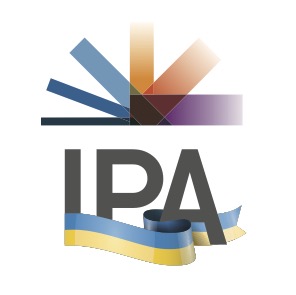While the meeting got off to a slow start following technical difficulties with simultaneous interpretation, our excellent interpreter agreed to work with consecutive interpretation and we were underway.
The meeting was chaired by Kristenn Einarsson, chair of the IPA’s Freedom to Publish Committee and opened by IPA President, Karine Pansa. Pansa underlined the importance of the freedom to publish to IPA, as one of its two pillars, and how important it was to recognize the impact of the war on this essential foundation for publishing. She warmly welcomed our Ukrainian colleagues and underlined the powerful example that they have given us.
Oleksandr Afonin, President of the Ukrainian Publishers and Booksellers Association then addressed the freedom to publish situation in Ukraine. Is there freedom to publish? Yes and no. Yes because there are no laws preventing Ukrainian publishers from publishing whatever they like. No, however, because the state of war that they have endured since Russia invaded Ukraine on 24 February 2022 has led to the deaths of hundreds of publishers, editors, authors and illustrators. The war has destroyed infrastructure. In 2021 there were 1053 publishing houses operating, last year that number fell to 563.
Afonin detailed the daily risks that publishers take to continue their work and spoke eloquently about the type of support that Ukrianian publishers need:
- Buying rights to Ukrainian books
- Making Ukrainian books available on bookshop shelves around the world
- Charitable support to help Ukrainian libraries rebuild their collections and buy books
- Financial support for those who have lost loved ones, property, etc.
You can read Oleksandr Afonin’s speech in Ukrainian here.
Afonin’s speech was followed by the perspectives of two Ukrainian publishers Yuliia Orlova of Vivat in Kharkiv and Marjana Savka of Old Lion Publishing in Lviv as well as author and PEN Ukraine Vice President Ostap Slyvynsky.
You can see the recording of the rest of the session here.
Yuliia Orlova, whose publishing house is based in Kharkiv, just 40km from the Russian border, underlined the practical difficulties of keeping and paying over 100 staff. Over 80% of the city’s population have left Kharkiv and work from elsewhere in Ukraine or abroad. 20 trucks’ worth of goods had to be transported. She underlined the psychological burden of trying to produce books with love and creativity when surrounded by fear. At the same time reading is a psychological escape for Ukrainian readers who still buy books. She closed by echoing Afonin’s calls – invest in Ukrainian authors, sell rights to Ukrainian publishers, find ways to help those Ukrainians who have moved abroad to keep reading Ukrainian.
You can read Yuliia’s speech here.
Marjana Savka, thanked everyone present for their support and spoke of the importance of the image of Ukraine and Ukrainians. She shared the terrible reality of trying to publish during the war and also the psychological burden. Despite the conditions Old Lion still managed to publish 100 books last year and Ukrainians are still buying them. Old Lion also managed to sell rights to 67 books and will be present at Bologna Book Fair. She asked not for pity but to be treated as book sector colleagues on the same footing, even as competitors.
You can read Marjana’s speech here.
Ostap Slyvynsky used his time to focus on the cultural aspect of the war, whereby Ukrainian culture and heritage was clearly being targeted. Libraries and museums have been destroyed. Ukrainian-language road signs replaced with Russian-language signs.
Slyvynsky listed the people working in the culture industry who have been lost – 44 – but with many more unaccounted for. Volodymyr Vakulenko was given as an example – the children’s author was abducted in March 2022 but his death was only confirmed in November.
Syvynsky closed by sharing PEN Ukraine resources that can help those outside Ukraine support Ukrainian authors and publishers.
You can read Ostap Slyvynsky’s presentation here. You can see the PEN Ukraine website here: https://pen.org.ua/en
The final presentation came from Yulia Kozlovets from the Book Arsenal fair who wanted to look at how bridges can be built between the Ukrainian organisations and those internationally. Yulia also looked at the destruction of schools and the impact on education and literacy, echoing the statement from Oleksandr Afonin on the absence of printed textbooks in Ukrainian schools since last year.
Yulia closed by amplifying the call from the previous speakers with practical support. Closing with the slide:
We ask for your support in the name of democratic values, peace, truth, and freedom of choice. Freedom to Publish
You can see Yulia’s presentation here.
IPA Secretary General, José Borghino, thanked our Ukrainian colleagues for their harrowing but inspiring speeches. He stressed that the IPA stood firm with its Ukrainian member and looked forward to a time when Ukraine could be free of its current hardships and Ukrainian authors an publishers could write and publish freely.
If you want to support the Ukrainian book sector you can contact the speakers through the IPA secretariat: secretariat@internationalpublishers.org

